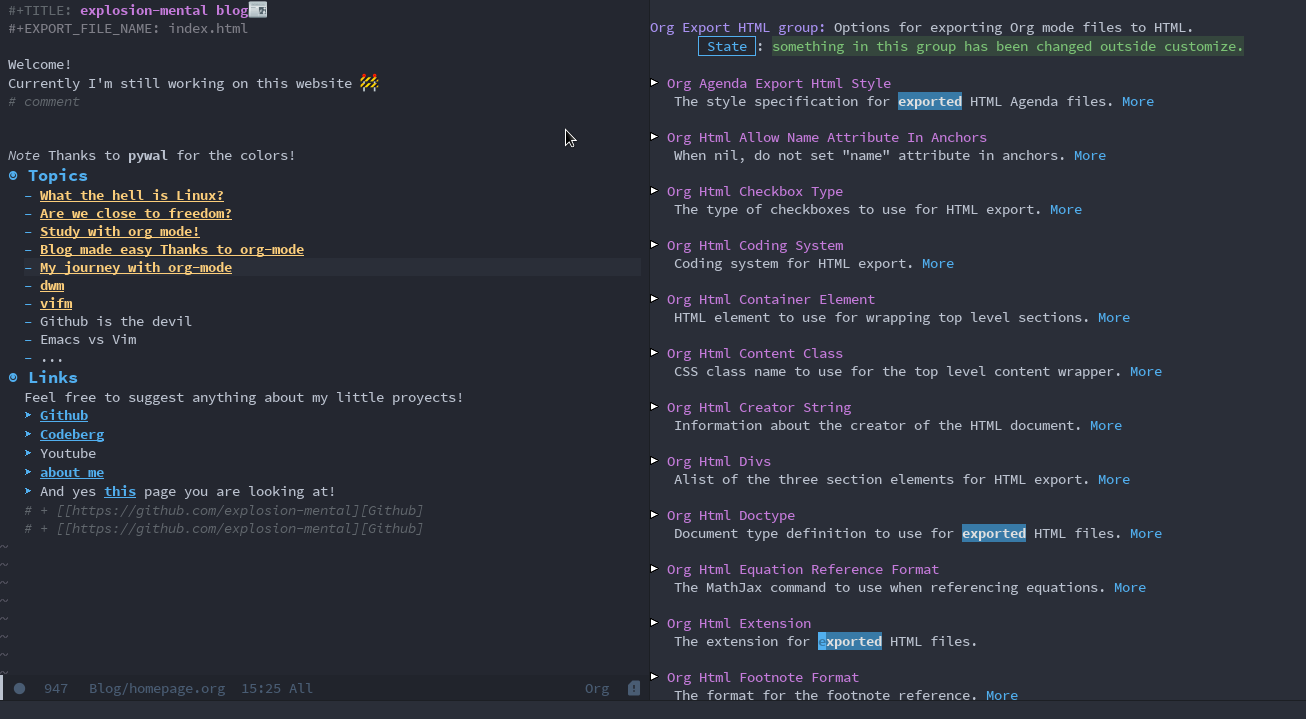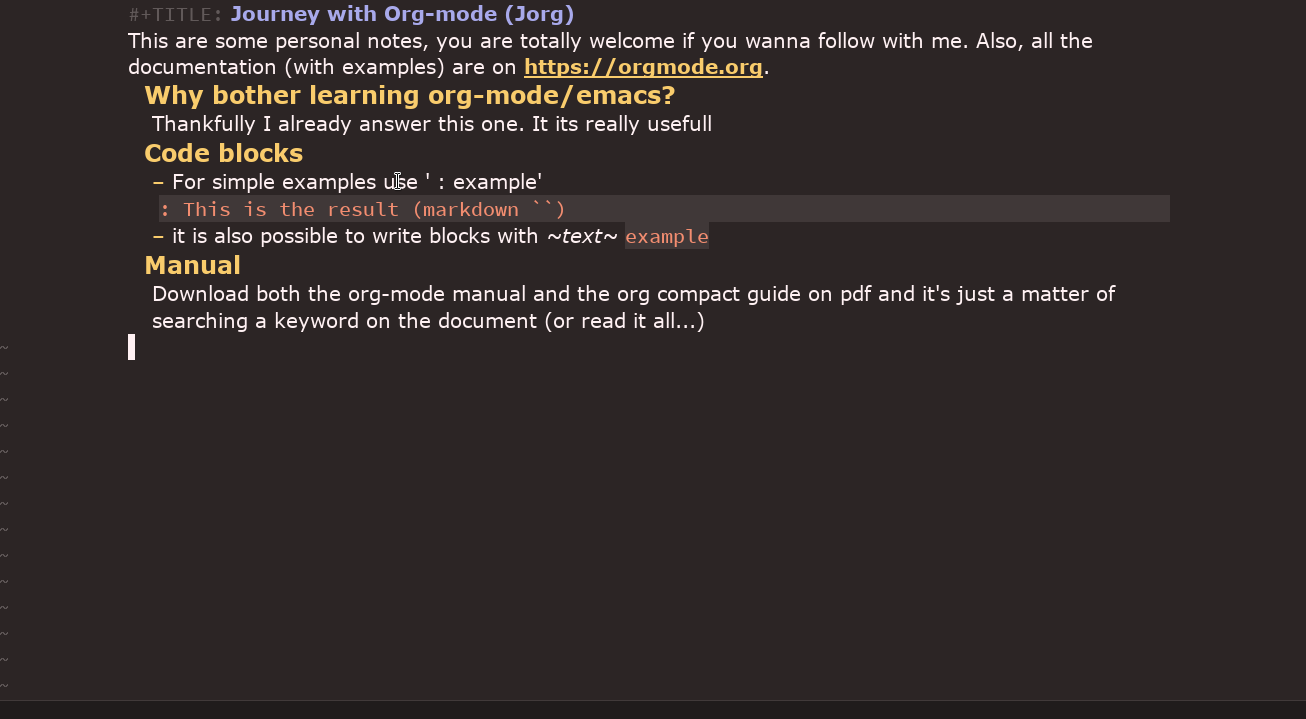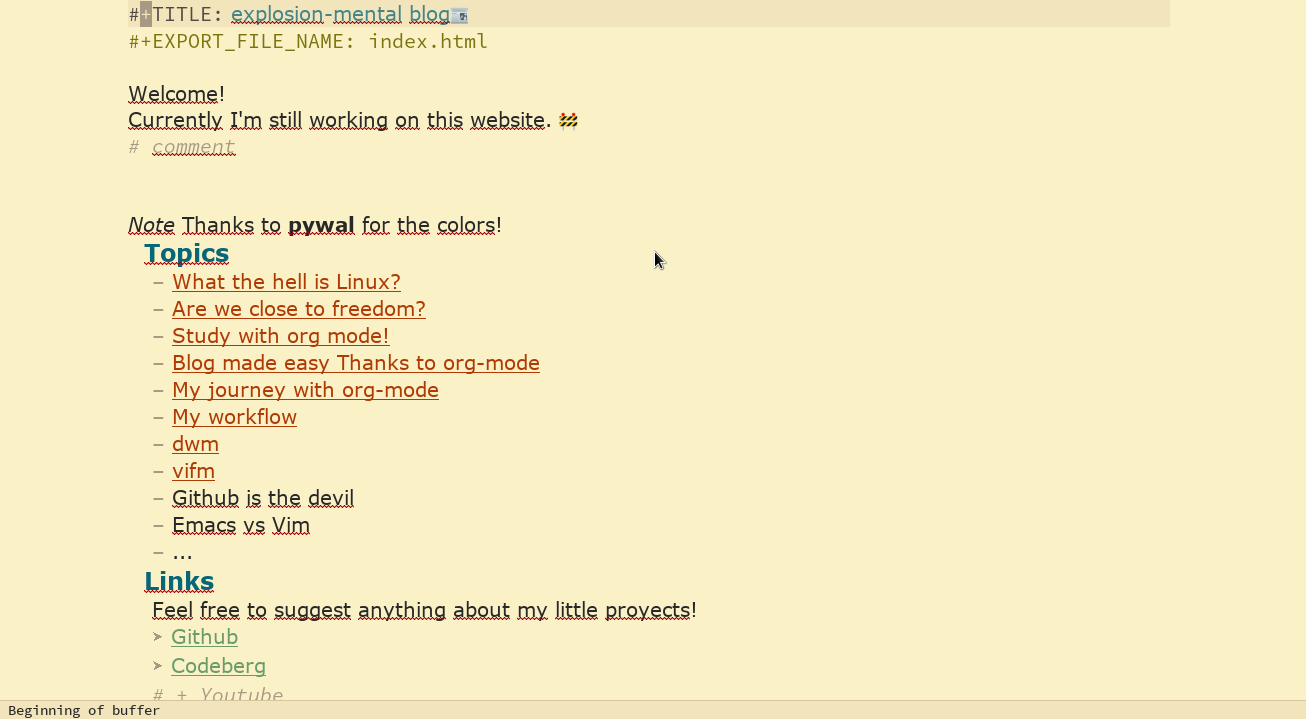
This are some personal notes, you are totally welcome if you wanna follow with me. Also, all the documentation (with examples) are on https://orgmode.org.
Some of the examples or information about org-mode that references this html document is no longer correct given that I’ve switched to hugo.
Thankfully I already answer this one. Two answers, rather two stages:
I’m the first time and I only write on emacs. Imagine a rich editor (uhm.. lisp interpreter) which support vim bindings..
For simple examples use : example
This is the result
it is also possible to write blocks with text example
This must be the best advice yet, just download both the org-mode manual and the org compact guide on pdf and it’s just a matter of searching a keyword on the document (or read it all…)
So, after all my ricing (outside emacs), I decided to get a nice looking theme for emacs. I thought doom emacs default theme looks similar to onedark vim theme, so I felt like I was coding. Since I use org-mode for writting I can left apart the hacker inside me and use a theme other than dark.
Note: right click to see full image resolution



Plan 9 emacs or gruvbox-light seems to be my liking. I’m still new to light modes but I want something that has sepia or the background color of an old book.
(setq org-publish-use-timestamps-flag nil)
This settings (rather functions) gets applied if the file extension is org. This does two things when entering a *.org file (you can understand it like autocmd on vim):
(add-hook! org-mode
(setq-local display-line-numbers nil)
(+zen/toggle)
)
(setq confirm-kill-emacs nil) ; Just quiiiiiit
Apparently the best way is to use both ispell (basically aspell) and flyspell (hunspell).
This doesn’t checks for new words but it’s rather a buffer dictionary, the command is self descriptive, that has to be enabled and updated. I only have a caveat which is I don’t know how to switch between dictionaries.
Like it’s name, spell checking on the fly. Many say it’s not that accurate, I’m still new to spellchecking so I coldn’t tell you.
Like I said above, both. I will list a function to change dictionaries on ispell.
Here is a function from https://stackoverflow.com/a/27551890 (CC BY-SA 3.0) : I’ve made some changes to the original function to be more unix friendly and for my use case.
(defface ispell-alpha-num-choice-face
'((t (:background "black" :foreground "red")))
"Face for `ispell-alpha-num-choice-face`."
:group 'ispell)
(defface ispell-text-choice-face
'((t (:background "black" :foreground "forestgreen")))
"Face for `ispell-text-choice-face`."
:group 'ispell)
(defun my-ispell-change-dictionaries ()
"Switch between language dictionaries."
(interactive)
(let ((choice (read-char-exclusive (concat
"["
(propertize "E" 'face 'ispell-alpha-num-choice-face)
"]"
(propertize "nglish" 'face 'ispell-text-choice-face)
" | ["
(propertize "S" 'face 'ispell-alpha-num-choice-face)
"]"
(propertize "panish" 'face 'ispell-text-choice-face)))))
(cond
((eq choice ?E)
(setq flyspell-default-dictionary "english")
(setq ispell-dictionary "english")
(setq ispell-personal-dictionary "~/.local/share/dicts/en")
(ispell-kill-ispell)
(message "English"))
((eq choice ?S)
(setq flyspell-default-dictionary "spanish")
(setq ispell-dictionary "spanish")
(setq ispell-personal-dictionary "~/.local/share/dicts/es")
(ispell-kill-ispell)
(message "Español"))